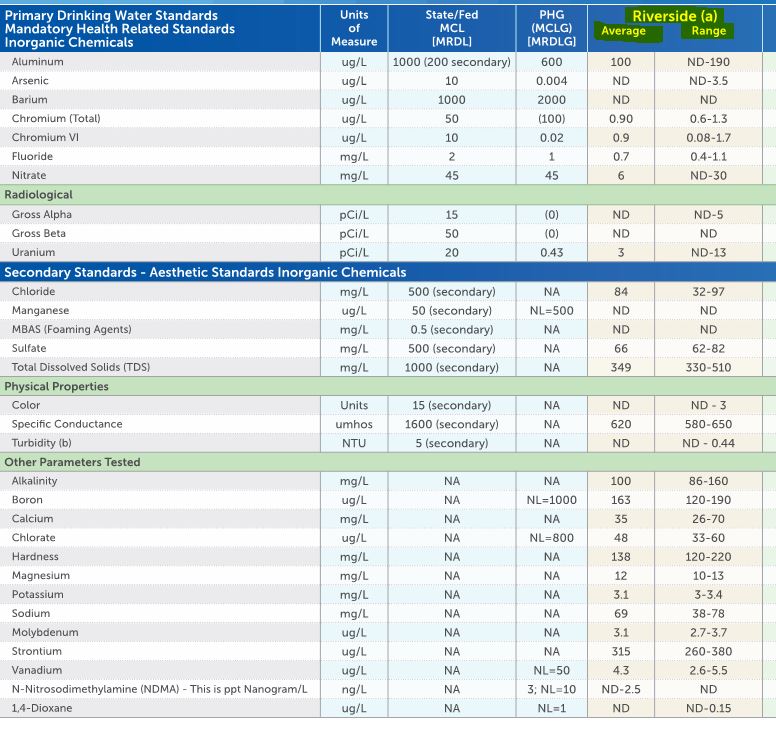Hi all,
I have brewed about 8 batches so far, about half extract and half all-grain. My extract batches came out pretty good with no major off-flavors or issues, although there is always room for improvement. Recently however, my all-grain batches have had a certain bitter/metallic "twang" to them, mostly as an after taste. I have been using a carbon filter to filter my water (no campden), although I just pulled up a recent water report from my water company and noticed that the water is treated with Chloramine instead of Chlorine. Could this be causing that twang?
I have also attached a copy of my most recent water report. I know that mash pH could also be causing some weird off-flavors, especially in lighter beers, but I am still trying to make heads or tails of the water report and Bru'n Water.
Any help/advice would be appreciated.

I have brewed about 8 batches so far, about half extract and half all-grain. My extract batches came out pretty good with no major off-flavors or issues, although there is always room for improvement. Recently however, my all-grain batches have had a certain bitter/metallic "twang" to them, mostly as an after taste. I have been using a carbon filter to filter my water (no campden), although I just pulled up a recent water report from my water company and noticed that the water is treated with Chloramine instead of Chlorine. Could this be causing that twang?
I have also attached a copy of my most recent water report. I know that mash pH could also be causing some weird off-flavors, especially in lighter beers, but I am still trying to make heads or tails of the water report and Bru'n Water.
Any help/advice would be appreciated.

















































![Craft A Brew - Safale S-04 Dry Yeast - Fermentis - English Ale Dry Yeast - For English and American Ales and Hard Apple Ciders - Ingredients for Home Brewing - Beer Making Supplies - [1 Pack]](https://m.media-amazon.com/images/I/41fVGNh6JfL._SL500_.jpg)











